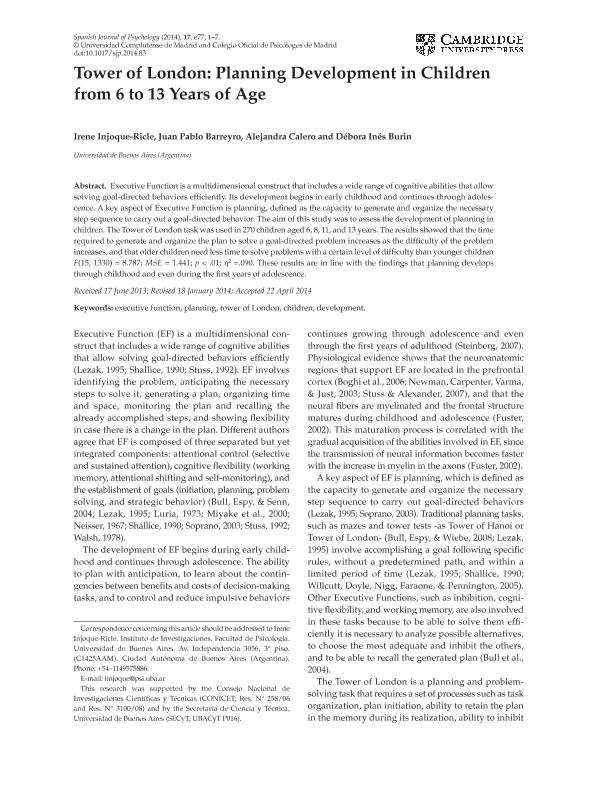Artículo
Tower of London: Planning development in children from 6 to 13 years of age
Fecha de publicación:
11/2014
Editorial:
Cambridge University Press
Revista:
The Spanish Journal of Psychology
ISSN:
1988-2904
Idioma:
Inglés
Tipo de recurso:
Artículo publicado
Clasificación temática:
Resumen
Executive Function is a multidimensional construct that includes a wide range of cognitive abilities that allow solving goal-directed behaviors efficiently. Its development begins in early childhood and continues through adolescence. A key aspect of Executive Function is planning, defined as the capacity to generate and organize the necessary step sequence to carry out a goal-directed behavior. The aim of this study was to assess the development of planning in children. The Tower of London task was used in 270 children aged 6, 8, 11, and 13 years. The results showed that the time required to generate and organize the plan to solve a goal-directed problem increases as the difficulty of the problem increases, and that older children need less time to solve problems with a certain level of difficulty than younger children F(15, 1330) = 8.787; MSE = 1.441; p <.01; η2 =.090. These results are in line with the findings that planning develops through childhood and even during the first years of adolescence.
Palabras clave:
Children
,
Development
,
Executive Function
,
Planning
,
Tower of London
Archivos asociados
Licencia
Identificadores
Colecciones
Articulos(SEDE CENTRAL)
Articulos de SEDE CENTRAL
Articulos de SEDE CENTRAL
Citación
Injoque Ricle, Irene; Barreyro, Juan Pablo; Calero, Alejandra Daniela; Burin, Debora Ines; Tower of London: Planning development in children from 6 to 13 years of age; Cambridge University Press; The Spanish Journal of Psychology; 17; 2; 11-2014; 1-7; E77
Compartir
Altmétricas




